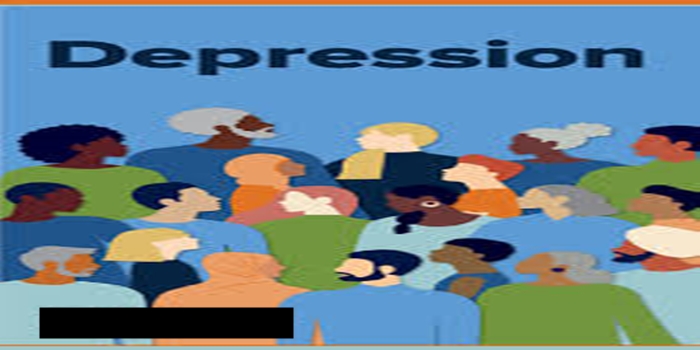In this article, we discussed the meaning of depression, the causes, the symptoms, we also talked about the types and the solution
Definition
Depression is a common mental health condition that causes a persistent feeling of sadness and changes in how you think, sleep, eat and act.
Depression is a mood disorder that causes a persistent feeling of sadness and loss of interest in things and activities you once enjoyed. It can also cause difficulty with thinking, memory, eating and sleeping.
Causes of Depression
Researchers don’t know the exact cause of misery. They think that several factors contribute to its development, including:
Brain chemistry: An imbalance of neurotransmitters, including serotonin and dopamine, contributes to the development of it
Genetics: If you have a first-degree relative (biological parent or sibling) with depression, you’re about three times as likely to develop the condition as the general population. However, you can have misery without a family history of it.
Stressful life events: Difficult experiences, such as the death of a loved one, trauma, divorce, isolation and lack of support, can trigger it.
Medical conditions: Chronic pain and chronic conditions like diabetes can lead to it.
Medication: Some medications can cause depression as a side effect. Substance use, including alcohol, can also cause depression or make it worse.
Symptoms of Depression include:
continuous low mood or sadness.
feeling hopeless and helpless.
having low self-esteem.
feeling tearful.
feeling guilt-ridden.
feeling irritable and intolerant of others.
having no motivation or interest in things.
finding it difficult to make decisions.
poor concentration
feelings of excessive guilt or low self-worth
hopelessness about the future
thoughts about dying or suicide
disrupted sleep
changes in appetite or weight
feeling very tired or low in energy.
Types of Depression
Major Depressive Disorder
People who have major disorder have had at least one major depressive episode (five or more symptoms for at least a two-week period). For some people, this disorder is recurrent, which means they may experience episodes once a month, once a year, or several times throughout their lives.
Persistent Depressive Disorder
Persistent disorder (formerly dysthymia) is a continuous long-term, chronic state of low-level depressed mood.
Postpartum
Postpartum is characterized by feelings of sadness, indifference, exhaustion, and anxiety that a woman may experience after the birth of her baby. It affects one in every 9 women who have had a child, and can affect any woman, regardless of her age, race, or economic background.
Bipolar
People diagnosed with bipolar disorder have mood swings involving both lows and highs (called mania if severe or hypomania if mild). When people experience the lows of bipolar disorder (bipolar depression), their symptoms are very similar to those that someone with unipolar might experience.
Seasonal Affective Disorder
Seasonal Affective Disorder (SAD) typically starts in the late fall and early winter and dissipates during the spring and summer. episodes linked to the summer can occur, but are much less common than winter episodes of SAD.
Psychotic Depression
Psychotic occurs when psychotic features such as hallucinations and delusions are accompanied by a major depressive episode, though psychotic symptoms generally have a depressive theme such as guilt, worthlessness, and death.
Depression can be treated with a combination of therapy, medication, and lifestyle changes:
Therapy
Psychotherapy, either in person or virtual, is often the first treatment for mild depression.
Medication
Antidepressants can change brain chemistry and are usually prescribed for moderate or severe depression.
Brain stimulation therapy
This may be an option for severe depression with psychosis.
Lifestyle changes
These can include:
Eating a healthy diet
Getting enough sleep
Exercising regularly
Avoiding alcohol
Spending time with loved ones
Expressing yourself through art, writing, cooking, or other activities
Noticing three good things each day
Being patient with yourself
Conclusion
Depression can be temporary, or it can be a long-term challenge. Treatment doesn’t always make your depression go away completely. However, treatment often makes symptoms more manageable. Managing symptoms of depression involves finding the right combination of medications and therapies.

